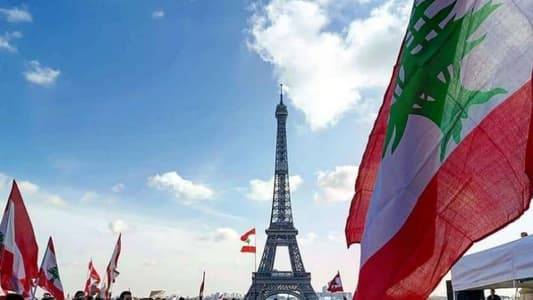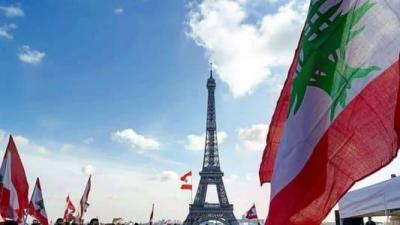In the general scene, French activity seems effective in preparing for a Quintuple meeting, in contrast to France's role in protecting Total's interests in exploration. However, the results do not appear positive, suggesting that it may be the last attempts for France to maintain a presence in the Near East. France is looking at what is being prepared for the Near East from Iraq to Syria and Lebanon, finding no foothold in Iraq or Syria, and seeing Lebanon as the only option to secure continuity since the explosion on August 4, 2020. However, its role shifts to serve a struggling French policy in the region that does not directly benefit Lebanon amid regional and international dynamics.
On the eve of the Quintuple meeting in Paris, discussions continue between Beirut and Paris, as well as among active French circles, about the policy that French President Emmanuel Macron's administration insists on adhering to and operating under, despite its steps not achieving even minimal success for various reasons. Paris wants to maintain its presence in Lebanon, not only due to historical ties that have faltered over the years and changed in their frameworks but also to preserve a strategic existence in a region where its role has significantly diminished. It observes the American role in Syria as largely withdrawn, limited to providing necessary support for the Kurdish forces while rejecting any normalization with Syrian President Bashar al-Assad's regime, and also views its role in Iraq, which remains of interest to Washington, but with new horizons that align with changes in the Iraqi political scene.
Looking at Saudi Arabia, it sees the kingdom stepping back from any involvement in Syria and Lebanon except through the Yemen portal, thus attempting to find a passage for itself in Beirut. Ultimately, there remains no arena where it can find an entry point for a foreign policy that provides it with presence and intersections with influential capitals, after its policies in various regions from Africa to Europe have faced setbacks. However, it knows perfectly well that it cannot be effective in Lebanon as needed without American and Saudi coverage. Past experiences have shown France that any solution lacking Washington's approval is unlikely to succeed, regardless of how much its diplomacy in Beirut attempts to operate in parallel with American diplomacy.
The basis is direct American coverage for France's foreign policy in Lebanon, and the steps it can take to formulate a solution remain bogged down based on past experiences. The same applies to its approach to relations with Saudi Arabia, as it knows that it cannot provide any real support in Lebanon without direct Saudi intervention in the political and financial crisis. Both Washington and Riyadh have acted indifferently regarding decisions that could change the current trajectory. Washington focuses its attention on the military while Riyadh provides limited humanitarian aid. Hence, the anticipated Quintuple meeting, preceded by French Foreign Minister Catherine Colonna’s visits to Saudi Arabia and the UAE, holds little benefit unless the policies of the main participants change.
Qatar’s involvement seems to serve Paris rather than Lebanon directly. Amid the stagnation in French-Iranian relations and the implications of the Qatari-Iranian relationship, as well as Qatar's entry into exploration in the Beirut sea with the French Total company, the contours of the French role are drawn. Paris seeks to protect its interests and those of its companies while trying to achieve balance with regional countries, wanting to present itself as a balanced partner in Lebanon after the disruptions that have affected its diplomatic operations. The ongoing discussions for months about the French role, which leaned toward adopting the views of those protesting against the authority after the October 17 demonstrations and subsequent to the port explosion, have changed in pursuit of Macron's initiative.
Opponents of Hezbollah, traditionally aligned with France, now view Paris's role through a new partnership with the southern suburb. Recently, French diplomacy in Beirut has expressed its frustration with political and non-political powers that have historical ties with Paris, siding with Hezbollah's approach to the internal situation. Alongside the American and Saudi elements, Paris has hoped to establish communication lines with Iran to organize Lebanon’s state, as Macron, who has promised more than once to visit Beirut, sees his country at odds with it while trying to maintain what it has achieved in communication channels, finding the Qatari role a helpful element under the pretext of Lebanon. However, as much as Paris works to organize its external papers, the Lebanese situation becomes more fragile among the arenas where France operates, exposed to repeated diplomatic experiments by Macron's administration.
It is clear that a conviction is solidifying among Lebanese forces that Paris operates according to economic and foreign interests that correspond to its own struggling strategy, leading to the conclusion that the anticipated results of the upcoming Quintuple conference will not be better than those that Lebanon has harvested from Paris since Macron's speech at the Pine Palace.




